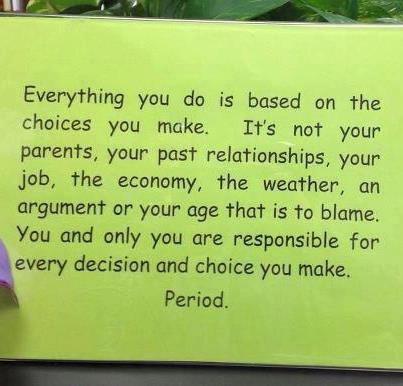Isaac Lidsky is back and is as helpful and impressive as ever!
Almost a year ago I wrote about an incredible TED talk by a guy named Isaac Lidsky, who movingly described how our brains masterfully construct our own unique, personal, and virtual realities. I’m not going to say anything more about that talk, because I don’t want to give any spoilers for why the talk was so moving, but you can access the blog post and talk at the following link –
What You Feel Can Change What You See
I said Isaac Lidsky is back because I recently became aware of an interview he conducted with Michelle Gielan, who I will say more about in a second. It turns out that Isaac has a website, which you can access at www.lidsky.com, and which you can also access below –
Ms. Gielan is a former CBS News anchor who became disturbed about the amount of negativity in her reporting, so she left to begin studying positive psychology with Martin Seligman. As a result, she has become a positive psychology expert herself and is a researcher and best-selling author. Specifically, “She studies the power of mindset to create happiness and forward progress in our lives.”
The interview, one of Lidsky’s Mastering Your Reality series, is not long, less than 15 minutes, and I encourage you to check it out. In case you don’t watch it right away, here are some of my takeaways from their visit, each of them so complimentary to Choice Theory beliefs –
+ Happiness doesn’t just happen, it takes attention.
+ Starting your day with three minutes of negative news in the morning increases your chance of having a bad day by 27% (as recorded 6-7 hours later).
+ It’s incredibly important to focus on a solution, rather than focus on the problem.
+ 91% of us need to respond to stress better; people get stuck in the problem.
+ Helpful to get the brain to focus on even one small meaningful action you can take right now to start solving the problem; so many benefits from getting to an action phase.
“You’re not going to get from A to Z unless you get from A to B.”
+ Becoming who or what we want to be isn’t about discovering and flipping some life-changing switch, as much as it is about intentionality everyday and managing your own well being.
+ Optimism is basically the belief that in the midst of challenges our behavior matters and the expectation that good things will happen.
+ We are malleable and can change our levels of optimism.
“Starting your day with 3 minutes of negative news in the morning
increases your chances of having a bad day by 27%.”
The interview closed with noting three dimensions of stress –
1) Do you stay stuck in the problem? vs. Do you move to an action plan?
2) Are you keeping things inside you? vs. Are you communicating with people you trust? Building social connection is the greatest predictor of long-term happiness.
3) Are you staying calm? vs. Are you letting something ruin your whole day?
In general, do you view events as a stress or do you view them as a challenge? The brain really gets into taking on challenges, which also results in less stress symptoms.
Finally, the interview ended by emphasizing the importance of taking your vacation days, all of them, every year! We are better at our jobs when take vacations and mentally disconnect from work. Choose to go on vacations!
Improve your work.
Go on vacation!
Lidsky has written his own bestseller, Eyes Wide Open, which will be even more impressive to you after viewing his TED talk.

==================
On a personal note: After reading about and watching the Lidsky / Gielan interview, I did a search on The Better Plan blog and re-discovered my post of October 9, 2016, in which I not only introduced readers to Lidsky’s amazing story, but also shared my own (then recent) cancer diagnosis, a rare form of non-Hodgkins lymphoma known as Waldenstroms. Seeing that I am writing about Lidsky again, it seems right to update you on my cancer thing.

After almost a year of chemo pills and infusion therapy, my blood levels are almost entirely back where they need to be. My energy is back up and I have even gotten back on the bike and conquered the small mountain on which I live. Recently, I was taken off of the pills and the infusions because they want to see how I can do on my own. So far, so good. Love to all.

The book that connects the dots of William Glasser’s ideas and his career.






























